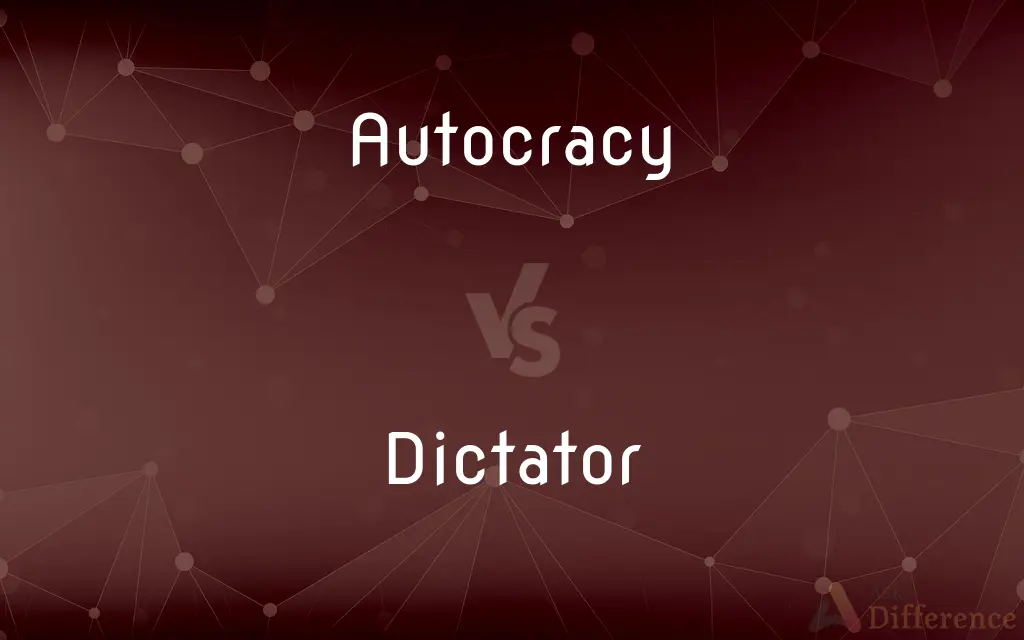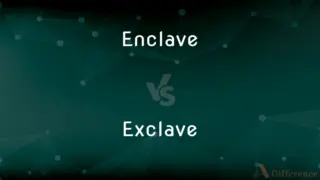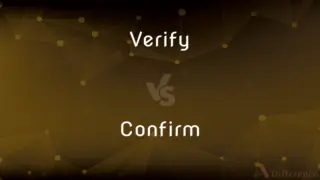Autocracy vs. Dictator — What's the Difference?
By Tayyaba Rehman — Updated on April 19, 2024
An "autocracy" is a system of government where one person holds all power, while a "dictator" is an individual who rules in such a manner.

Difference Between Autocracy and Dictator
Table of Contents
ADVERTISEMENT
Key Differences
An "autocracy" pertains to a form of governance where supreme power is held by a single individual. This means that the governmental system itself, regardless of who is in power, revolves around a singular entity having complete authority. On the other hand, a "dictator" is a person who rules an autocratic government. The term typically carries a negative connotation, implying a ruler who has taken power, often unlawfully or through force, and who governs without the consent of the governed.
Autocracy, such a system can be hereditary, where power passes through bloodlines, or can be established in other manners, but the central theme remains: power is concentrated. Dictator, it's the human representation of the autocratic system. This leader often suppresses opposition, controls various aspects of society, and might rule with an iron fist.
While an autocracy describes the political system or the framework, a dictator denotes the individual within that system. Notably, all dictators rule autocracies, but not all autocracies are led by individuals labeled as dictators. Some monarchies, for instance, can be autocratic in nature without the monarch being termed a dictator.
Historically, both autocracy and dictatorship have been seen in numerous societies. The terms and their practical implications have evolved, but the essence remains. In essence, while autocracy outlines the singular concentration of power as a system, a dictator is the embodiment of that system.
Comparison Chart
Nature
Form of government
Individual ruling that form of government
ADVERTISEMENT
Scope
Describes a system
Refers to a person
Power
Concentrated in one entity
Held by the dictator
Connotation
Neutral (can be positive or negative)
Typically negative
Historical Usage
Can refer to various forms of singular rule
Often associated with oppressive regimes
Compare with Definitions
Autocracy
A system where one individual holds total power.
The nation shifted from a democracy to an autocracy overnight.
Dictator
A leader governing without checks and balances.
Under the dictator, the judiciary lost its independence.
Autocracy
Rule that centralizes power in one entity.
Critics argue that an autocracy lacks checks and balances.
Dictator
A ruler with total power over a country.
The dictator silenced all opposition to maintain control.
Autocracy
Government by a single authority.
The autocracy meant that decisions were made quickly, but without public input.
Dictator
An absolute ruler, often oppressive.
The country suffered economically and socially under the dictator.
Autocracy
Absolute sovereignty held by one person.
The transition to autocracy was marked by a suppression of dissent.
Dictator
A person exercising authority without consent.
The dictator rose to power through a military coup.
Autocracy
A governance system opposing pluralism.
Under the autocracy, media was tightly controlled.
Dictator
A person who imposes their will on the governed.
The dictator implemented policies without public consultation.
Autocracy
Autocracy is a system of government in which supreme power over a state is concentrated in the hands of one person, whose decisions are subject to neither external legal restraints nor regularized mechanisms of popular control (except perhaps for the implicit threat of coup d'état or other forms of rebellion).In earlier times, the term autocrat was coined as a favorable description of a ruler, having some connection to the concept of "lack of conflicts of interests" as well as an indication of grandeur and power. This use of the term continued into modern times, as the Russian Emperor was styled "Autocrat of all the Russias" as late as the early 20th century.
Dictator
A dictator is a political leader who possesses absolute power. A dictatorship is a state ruled by one dictator or by a small clique.
Autocracy
Government by a single person having unlimited power; despotism.
Dictator
An absolute ruler.
Autocracy
A country or state that is governed by a single person with unlimited power.
Dictator
A tyrant; a despot.
Autocracy
(uncountable) A form of government in which unlimited power is held by a single individual.
Dictator
An ancient Roman magistrate appointed temporarily to deal with an immediate crisis or emergency.
Autocracy
(countable) An instance of this government.
Dictator
One who dictates
These initials are those of the dictator of the letter.
Autocracy
Independent or self-derived power; absolute or controlling authority; supremacy.
The divine will moves, not by the external impulse or inclination of objects, but determines itself by an absolute autocracy.
Dictator
A totalitarian leader of a country, nation, or government.
Autocracy
Supreme, uncontrolled, unlimited authority, or right of governing in a single person, as of an autocrat.
Dictator
(history) A magistrate without colleague in republican Ancient Rome, who held full executive authority for a term granted by the senate (legislature), typically to conduct a war.
Autocracy
Political independence or absolute sovereignty (of a state); autonomy.
Dictator
A tyrannical boss or authority figure.
Autocracy
The action of the vital principle, or of the instinctive powers, toward the preservation of the individual; also, the vital principle.
Dictator
A person who dictates text (e.g. letters to a clerk).
Autocracy
A political system governed by a single individual
Dictator
One who dictates; one who prescribes rules and maxims authoritatively for the direction of others.
Autocracy
A political theory favoring unlimited authority by a single individual
Dictator
One invested with absolute authority; especially, a magistrate created in times of exigence and distress, and invested with unlimited power.
Invested with the authority of a dictator, nay, of a pope, over our language.
Dictator
A speaker who dictates to a secretary or a recording machine
Dictator
A ruler who is unconstrained by law
Dictator
A person behaves in an tyrannical manner;
My boss is a dictator who makes everyone work overtime
Common Curiosities
Do dictators always come to power by force?
No, while many dictators seize power by force, some can be elected or inherit it.
Can a dictator ever be a benevolent leader?
Theoretically, yes. A dictator can rule benevolently, but historically many have been oppressive.
Can a monarchy be an autocracy?
Yes, if the monarch holds absolute power, it's an autocracy.
What's the primary difference between autocracy and dictatorship?
Autocracy is a system of governance, while a dictator is a person ruling in such a system.
Are all autocratic systems oppressive?
No, the nature of an autocracy varies. It's how the power is exercised that determines oppression.
Are dictators always military leaders?
No, while many dictators have military backgrounds, it's not a prerequisite.
Can there be economic prosperity under a dictator?
Economic prosperity under a dictator is possible, but factors like governance, policy, and global relations play roles.
Do citizens have rights in an autocracy?
In an autocracy, citizen rights are determined by the ruler, which can be limited.
Is every autocracy ruled by a dictator?
Not necessarily. While every dictator rules an autocracy, not all autocracies have dictators.
Is autocracy the opposite of democracy?
In many ways, yes. Autocracy centralizes power, while democracy disperses it.
Do autocracies always lack public input?
While autocracies centralize power, the extent of public input varies based on the specific regime and ruler.
How do dictators maintain power?
Dictators often suppress opposition, control media, and may use force or propaganda.
Can autocracies have other officials?
Yes, an autocracy can have officials, but power remains centralized.
Is a dictator's rule always lifelong?
Often, but not always. The tenure of a dictator varies, and some can be ousted or step down.
What leads to the establishment of autocracy?
Various factors, including political upheaval, economic instability, or the desire for rapid decision-making, can lead to autocracy.
Share Your Discovery

Previous Comparison
Enclave vs. Exclave
Next Comparison
Verify vs. ConfirmAuthor Spotlight
Written by
Tayyaba RehmanTayyaba Rehman is a distinguished writer, currently serving as a primary contributor to askdifference.com. As a researcher in semantics and etymology, Tayyaba's passion for the complexity of languages and their distinctions has found a perfect home on the platform. Tayyaba delves into the intricacies of language, distinguishing between commonly confused words and phrases, thereby providing clarity for readers worldwide.















































